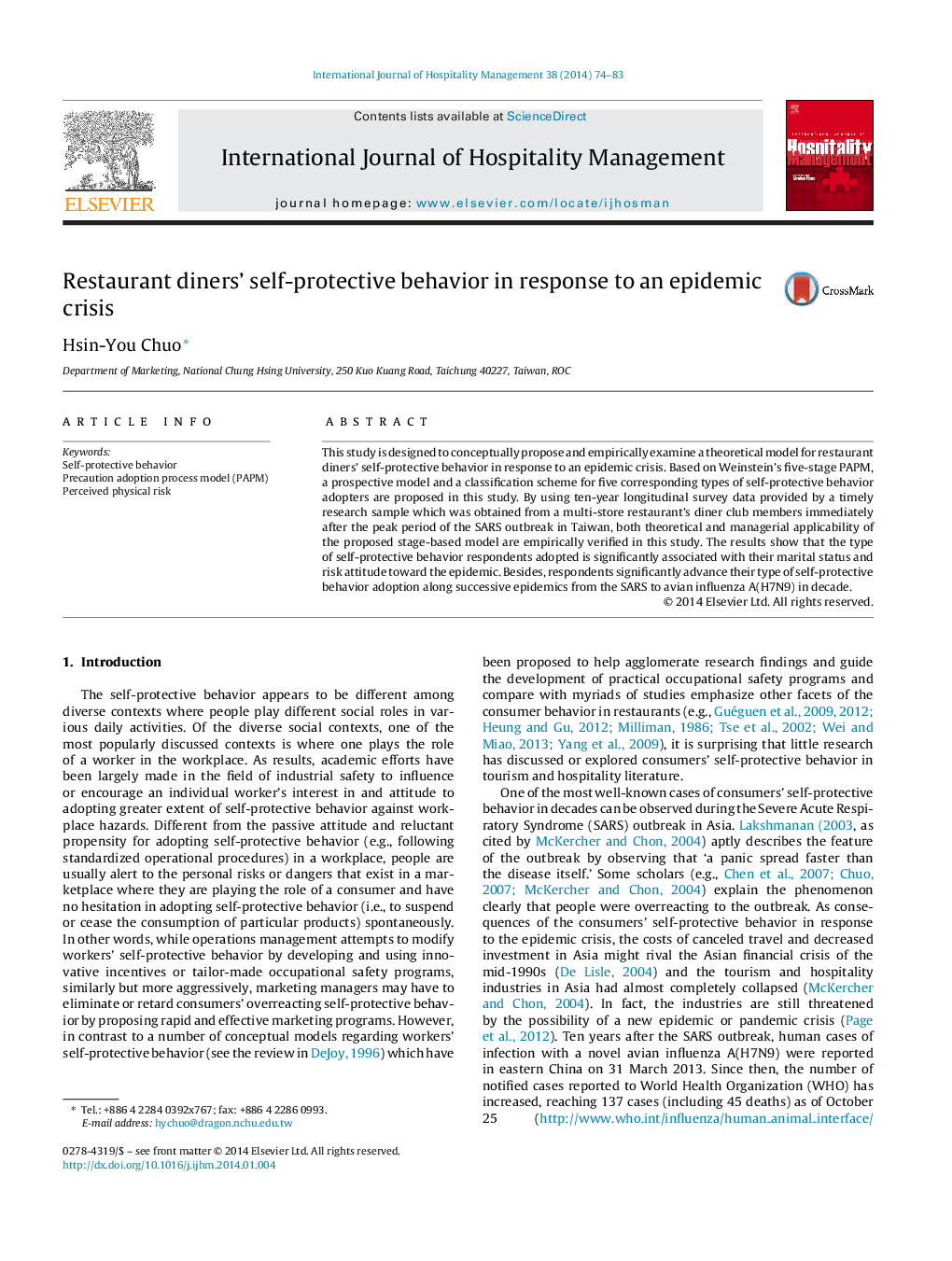| Article ID | Journal | Published Year | Pages | File Type |
|---|---|---|---|---|
| 1009644 | International Journal of Hospitality Management | 2014 | 10 Pages |
Abstract
This study is designed to conceptually propose and empirically examine a theoretical model for restaurant diners' self-protective behavior in response to an epidemic crisis. Based on Weinstein's five-stage PAPM, a prospective model and a classification scheme for five corresponding types of self-protective behavior adopters are proposed in this study. By using ten-year longitudinal survey data provided by a timely research sample which was obtained from a multi-store restaurant's diner club members immediately after the peak period of the SARS outbreak in Taiwan, both theoretical and managerial applicability of the proposed stage-based model are empirically verified in this study. The results show that the type of self-protective behavior respondents adopted is significantly associated with their marital status and risk attitude toward the epidemic. Besides, respondents significantly advance their type of self-protective behavior adoption along successive epidemics from the SARS to avian influenza A(H7N9) in decade.
Related Topics
Social Sciences and Humanities
Business, Management and Accounting
Strategy and Management
Authors
Hsin-You Chuo,
